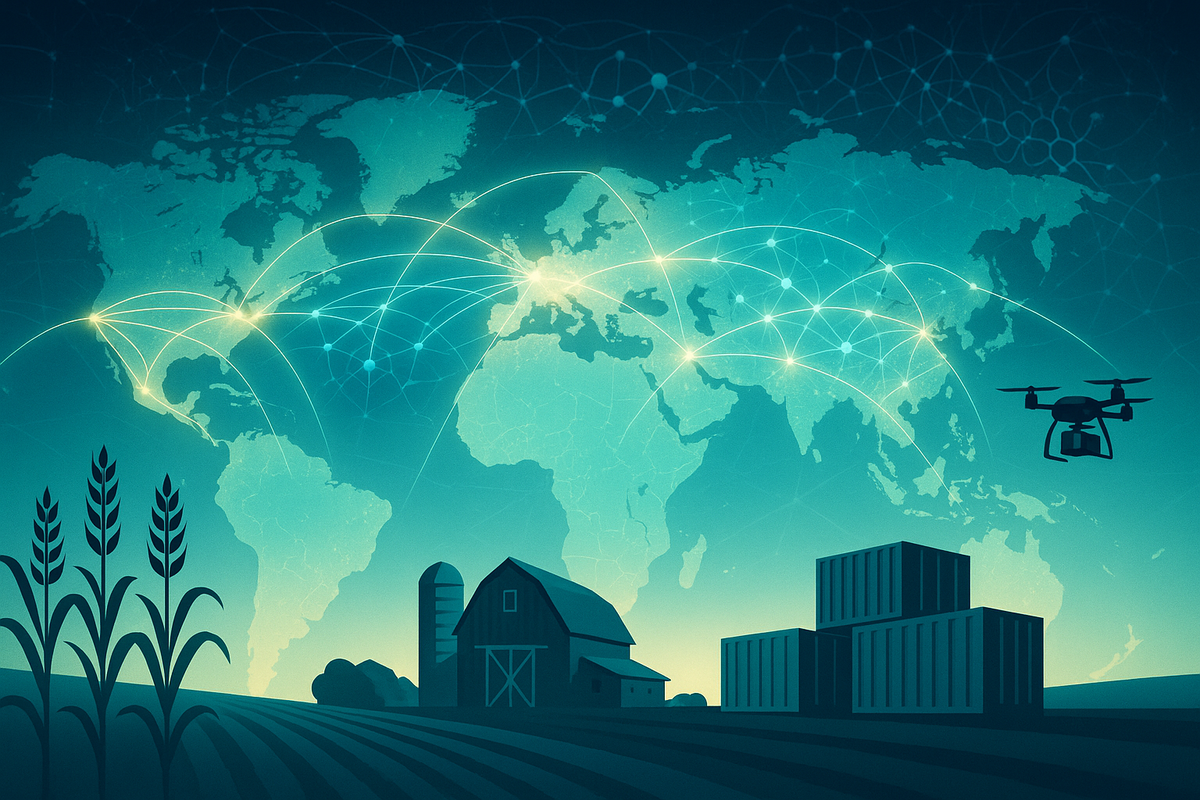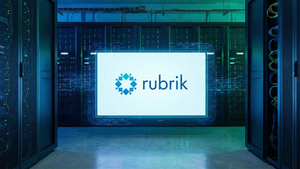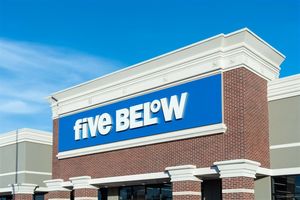
In a landmark development set to redefine the global food industry, Helios AI today, September 23, 2025, introduced Helios Horizon, an innovative AI multi-agent system engineered to bring unprecedented levels of optimization to food supply chains. This groundbreaking system leverages advanced agentic AI capabilities to synthesize billions of diverse signals, empowering businesses with critical insights to accurately forecast prices and proactively anticipate climate and supply risks. Its debut marks a significant leap forward in addressing the complexities and vulnerabilities inherent in the modern food ecosystem, promising a future of enhanced efficiency, reduced waste, and greater resilience.
The immediate implications of Helios Horizon’s launch are profound, signaling a paradigm shift in how food producers, distributors, and retailers manage their operations. By providing a comprehensive, data-driven understanding of market dynamics and potential disruptions, Helios AI aims to equip the industry with the tools necessary to navigate an increasingly volatile global landscape, ultimately benefiting consumers through more stable prices and consistent availability of goods.
What Happened and Why It Matters: A New Dawn for Food Logistics
Helios AI's introduction of Helios Horizon on September 23, 2025, represents a pivotal moment for the food supply chain sector. At its core, Helios Horizon is an AI multi-agent system, a sophisticated network of interconnected AI entities designed to work collaboratively. These agents are tasked with continuously monitoring and analyzing an immense volume of data—billions of signals ranging from weather patterns and geopolitical events to commodity prices and consumer demand. The system's agentic AI architecture allows these agents to not only process information but also to learn, adapt, and make autonomous decisions, leading to highly accurate predictions and actionable insights.
The significance of this launch cannot be overstated. Food supply chains are notoriously complex, susceptible to a myriad of external factors including climate change, geopolitical instability, disease outbreaks, and economic fluctuations. Traditional methods of forecasting and risk management often struggle to keep pace with these dynamic challenges, leading to inefficiencies, significant waste, and price volatility. Helios Horizon directly addresses these pain points by offering a holistic, real-time predictive capability. For the first time, businesses can gain a truly comprehensive view of potential disruptions before they occur, enabling proactive adjustments rather than reactive damage control. This proactive stance is crucial for an industry that underpins global food security and economic stability.
Market Ripple Effects: Who Wins and Who Loses in the AI Food Revolution
The introduction of Helios Horizon is poised to send significant ripple effects throughout the market, creating clear winners and losers. Companies that embrace this advanced AI solution are likely to gain a substantial competitive advantage. Food producers and agricultural enterprises adopting Helios Horizon could see improved yield management, optimized planting and harvesting schedules, and better price realization for their products by anticipating market shifts. Large-scale food distributors and logistics companies stand to benefit from streamlined inventory management, reduced spoilage, and more efficient transportation routes, leading to significant cost savings and enhanced profitability. Retail giants, such as Walmart (NYSE: WMT) or Kroger (NYSE: KR), could leverage these insights to optimize shelf stocking, minimize out-of-stocks, and offer more stable pricing to consumers, thereby strengthening customer loyalty and market share.
Conversely, companies that are slow to adapt or resist the integration of such advanced AI systems may find themselves at a distinct disadvantage. Those relying on outdated forecasting methods or manual risk assessment will struggle to compete with the efficiency and foresight of their AI-powered counterparts. This could lead to increased operational costs, higher levels of waste, and an inability to respond effectively to market disruptions, potentially eroding their market position and profitability. Furthermore, existing technology providers in the supply chain management space that do not evolve their offerings to include similar AI capabilities might face challenges from more innovative solutions like Helios Horizon. The competitive landscape for supply chain software and services is set to intensify, prompting a wave of innovation or consolidation.
Broader Implications: Reshaping the Future of Food
Helios Horizon's launch fits squarely within broader industry trends emphasizing digital transformation, sustainability, and food security. The global push for more resilient and sustainable food systems has gained considerable momentum, driven by climate change concerns, population growth, and increasing demand for transparent supply chains. Agentic AI, as demonstrated by Helios Horizon, offers a powerful tool to achieve these goals by minimizing waste, optimizing resource allocation, and ensuring more equitable distribution of food. This development could accelerate the adoption of similar AI-driven solutions across other critical sectors, setting a new benchmark for operational intelligence.
The potential ripple effects extend beyond direct competitors and partners. Regulatory bodies and policymakers may begin to explore new frameworks for data governance and AI ethics in critical infrastructure like food supply chains. The increased transparency and predictive capabilities offered by Helios Horizon could also lead to new standards for food safety and traceability, further enhancing consumer confidence. Historically, technological advancements that fundamentally improve efficiency and reduce risk in essential industries, such as the advent of containerization in shipping or enterprise resource planning (ERP) systems, have led to sustained periods of growth and modernization. Helios Horizon holds the potential to be such a transformative force, ushering in an era where food shortages and price spikes are mitigated through intelligent foresight, creating a more stable and secure global food future.
What to Pay Attention to Next: The Road Ahead for AI in Food
In the short term, the market will be keenly watching the initial adoption rates and success stories emerging from early implementers of Helios Horizon. Demonstrable improvements in efficiency, waste reduction, and risk mitigation will be crucial in validating the system's efficacy and driving wider industry uptake. Investors and industry observers should monitor partnerships formed by Helios AI, particularly with major players in agriculture, logistics, and retail, as these collaborations will signify the system's integration into mainstream operations. The development of competitive offerings from other AI firms will also be a key indicator of the market's response and the acceleration of AI innovation in supply chain optimization.
Long-term possibilities include the expansion of Helios Horizon's capabilities to encompass even broader aspects of the food ecosystem, such as personalized nutrition planning, advanced agricultural robotics integration, and even direct consumer engagement for demand-driven production. Strategic pivots for businesses will involve not just adopting the technology but fundamentally rethinking their operational models to leverage AI-driven insights fully. This could lead to new business models focused on hyper-efficient, demand-responsive supply chains. Market opportunities will emerge for companies providing complementary services, such as data integration, AI consulting, and specialized training for the new workforce required to operate these sophisticated systems. Potential scenarios range from a gradual, steady integration across the industry to a rapid, disruptive transformation that reshapes market leaders and creates entirely new segments.
Conclusion: A New Era of Intelligence for Food Supply Chains
Helios AI's launch of Helios Horizon marks a pivotal moment in the ongoing evolution of global food supply chains. By harnessing the power of agentic AI to process vast amounts of data and predict critical risks, the system offers a compelling solution to some of the industry's most enduring challenges, from price volatility to climate vulnerability. The key takeaway is the shift from reactive crisis management to proactive, intelligent foresight, promising a future of greater efficiency, sustainability, and resilience.
Moving forward, the market will undoubtedly prioritize solutions that offer tangible benefits in terms of cost savings, waste reduction, and enhanced responsiveness. Helios Horizon positions itself as a frontrunner in this new era of intelligent supply chain management. Investors should closely monitor the adoption curve of such AI technologies, the performance metrics of early adopters, and any regulatory responses to these powerful new tools. The lasting impact of Helios Horizon could be a more robust, equitable, and sustainable global food system, fundamentally changing how food is produced, distributed, and consumed for generations to come.




